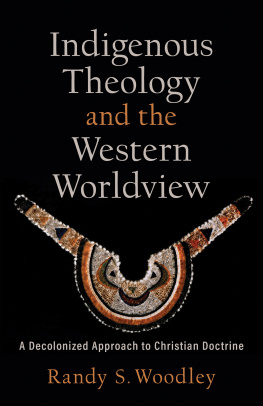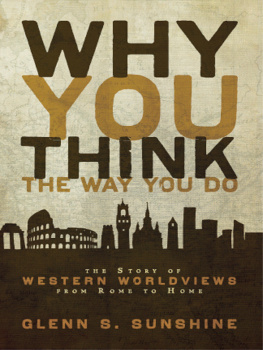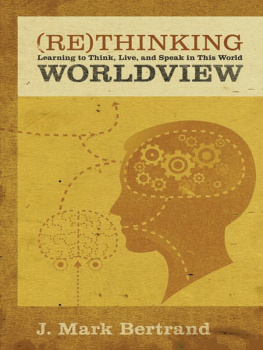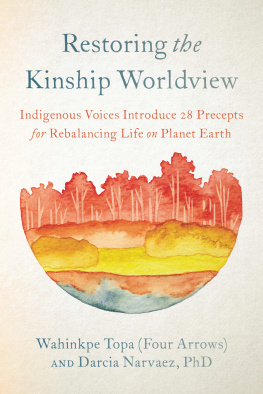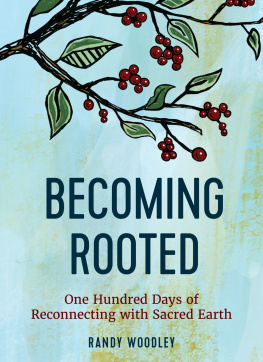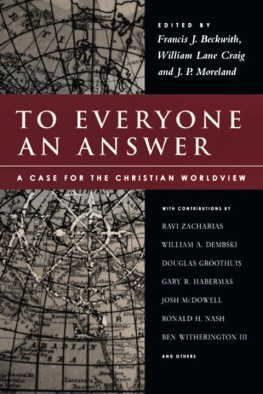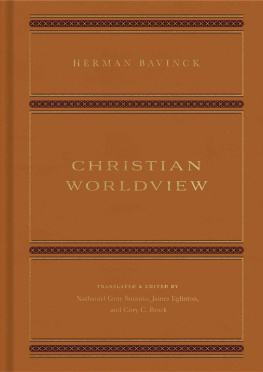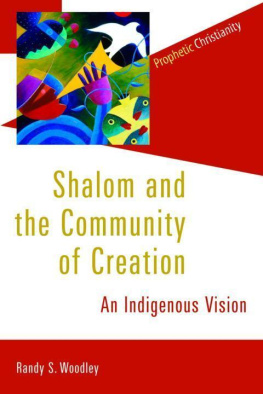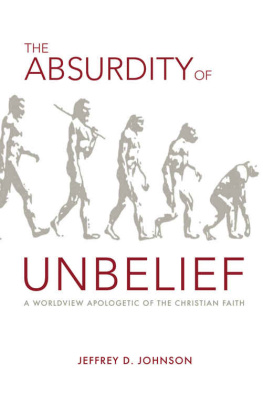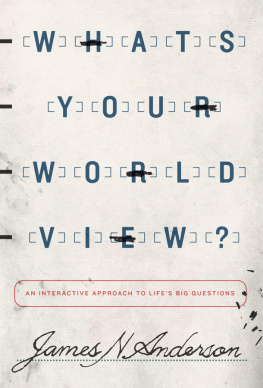Series Page
Acadia Studies in Bible and Theology
H. Daniel Zacharias, General Editor
The last several decades have witnessed dramatic developments in biblical and theological study. Full-time academics can scarcely keep up with fresh discoveries, ongoing archaeological work, new exegetical proposals, experiments in methods and hermeneutics, the rise of majority world theology, and innovative theological proposals and syntheses. For students and nonspecialists, these developments can be confusing and daunting. What has been needed is a series of succinct studies that assess these issues and present their findings in a way that students, pastors, laity, and nonspecialists will find accessible and rewarding. Acadia Studies in Bible and Theology, sponsored by Acadia Divinity College in Wolfville, Nova Scotia, and in conjunction with the colleges Hayward Lectureship, constitutes such a series.
The Hayward Lectureship has brought to Acadia many distinguished scholars of Bible and theology, such as Sir Robin Barbour, James D. G. Dunn, C. Stephen Evans, Edith Humphrey, Leander Keck, Helmut Koester, Richard Longenecker, Martin Marty, Jaroslav Pelikan, John Webster, Randy Woodley, and N. T. Wright. Initiated by Lee M. McDonald and Craig A. Evans, the Acadia Studies in Bible and Theology series continues to reflect this rich heritage and foundation.
These studies are designed to guide readers through the ever more complicated maze of critical, interpretative, and theological discussion taking place today. But these studies are not introductory in nature; nor are they mere surveys. Authored by leading authorities in the field, books in the Acadia Studies in Bible and Theology series offer critical assessments of major issues that the church faces in the twenty-first century. Readers will gain the requisite orientation and fresh understanding of the important issues that will enable them to take part meaningfully in discussion and debate.
Title Page
Copyright Page
2022 by Randy S. Woodley
Published by Baker Academic
a division of Baker Publishing Group
PO Box 6287, Grand Rapids, MI 49516-6287
www.bakeracademic.com
Ebook edition created 2022
All rights reserved. No part of this publication may be reproduced, stored in a retrieval system, or transmitted in any form or by any meansfor example, electronic, photocopy, recordingwithout the prior written permission of the publisher. The only exception is brief quotations in printed reviews.
Library of Congress Cataloging-in-Publication Data is on file at the Library of Congress, Washington, DC.
ISBN 978-1-4934-3341-4
Unless otherwise indicated, Scripture quotations are taken from the Holy Bible, New Living Translation, copyright 1996, 2004, 2015 by Tyndale House Foundation. Used by permission of Tyndale House Publishers, Inc., Carol Stream, Illinois 60188. All rights reserved.
Scripture quotations labeled NRSV are from the New Revised Standard Version of the Bible, copyright 1989 National Council of the Churches of Christ in the United States of America. Used by permission. All rights reserved.
Baker Publishing Group publications use paper produced from sustainable forestry practices and post-consumer waste whenever possible.
Dedication
To the Indigenous elders
who took the time to help me find my way:
Joe, Libby and Jake, Madison and Geraldine, Isabell, Gaitha, Lawrence, Mose, Elmer, Reeves and Clydia, Robert, Dave and Judy, Stanley and Elaina, Joanne and Teresa, Vincent, Jerry, Cornel, and many others along the way
Contents
Half Title Page
Series Page
Title Page
Copyright Page
Dedication
Preface
Acknowledgments
Opening Interview
1. The Myths of History and Progressive Civilizations
Question and Response
2. Comparing Western and Indigenous Worldviews
Question and Response
3. Decolonizing Western Christian Theology
Question and Response
Closing Interview
Index
Back Cover
Preface
Pedagogy
As a way of setting a proper context for the book, it is necessary that I mention a few particularities concerning an Indigenous pedagogy, which is rooted in Indigenous values. Even the word pedagogy implies teaching from a place of unequal positions or the problem of the subject/object paradigm. You will notice the dialogical nature of my style, especially in the question and response sections following each chapter. I feel that, when teaching or presenting, it is paramount to hear all the other voices in the room, not just my own. Although the Hayward Lectures are created in a very Western style, I tried to bend that style toward a more Indigenous platform. The word pedagogy technically implies a learning style resembling an adult teaching a child. Pedagogy implies that one person, the teacher or adult, has knowledge to share with the other, the receiver or child. In my graduate and undergraduate courses, I have always referenced my students (another word that implies the former inequality of position) as co-learners. Co-learners, short for collaborative learners, implies we are positionally equal, learning together. Yes, I likely have more years of study in the subject matter than many of them, but knowledge, not applied, does us little good. I have found that most learning experiences stick best when we bring not just knowledge but our own truth and experience to the conversation. As co-learners apply the knowledge that I help them bring forth, making it real in their own contexts, we learn from one another. Thus, real knowledge, that which is real to each ones experience, is shared together as co-learners in collaboration with the subject matter.
Much has been written about adult learning or what some of us call anthrogogy, and I need not repeat it here. Master teachers such as Paulo Freire, bell hooks, and Myles Horton have influenced my teaching style, but suffice it to say, the ideas of democracy and teaching from an egalitarian anthrogogy were on this continent long before Europeans arrived. Indigenous teaching styles embody a respect for co-learning without diminishing the authority of the teacher and without objectification of the co-learners. I always cherish conversations when people speak from their hearts, even if I disagree with them. Over the years, I have learned to face a reality in my own lifenamely, there are few areas in which I have no opinions or at least have no leanings, and therefore my assumptions are best challenged in groups by others who are thinking on the topic in a different way.
In many of our Native American traditions we have a prayer that often goes something like, Have pity/understanding on me Creator and remember, I am just a human being. The idea behind this prayer is that perfection is the enemy of attainment. We are all simply human beings, imperfect but learning from our mistakes. Those mistakes make us human. And being human by climbing out on a limb in order to reach others is the most spiritual state of being in which we may find ourselves. When those special moments come, everyone in the room feels like we have experienced something together that is truly sacred. Perhaps promoting knowledge among co-learners in an atmosphere of sacred space is the most important role I have as a scholar and a spiritual leader.
Narrative
In this book you will also notice what may seem to some to be an abundance of stories, both of a traditional Indigenous style and my own personal stories. Narrative theology, like anthrogogy, has been used as a primary communication tool among Indigenous peoples from time immemorial. Traditions are passed on orally, often through story, reinforcing the values developed over time among Indigenous peoples. Included in those values is an understanding that spoken words have primordial power. Tribal stories, then, are considered sacred and are not to be used lightly. These sacred stories reinforce other Indigenous values, much in the way ceremony and songs do. Naturally, stories, both shared tribal stories and ones own personal stories, are a primary vehicle for teaching and sustaining life.

